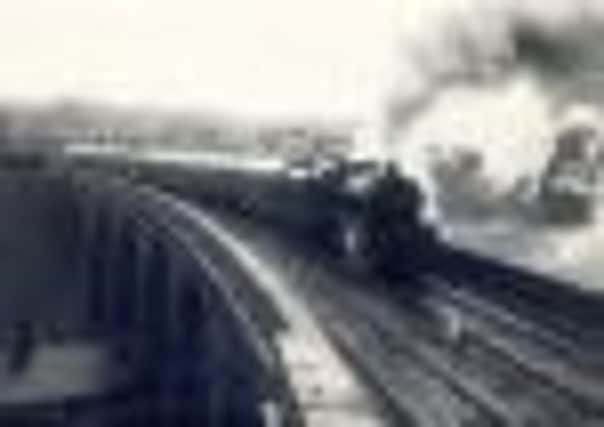GEOFF CRAMBIE: Steam trains that thundered through our towns


Our evocative and indeed unashamedly nostalgic photo captures Jubilee Class 4-6-0 number 45604 and named “Ceylon”, steaming over the Colne viaduct with Lord Street visible below; it is a sight we’ll never see again.
This 1950s notable and majestic picture is from a new book on Colne which is currently in the making (due out Winter 2011) with the title “Colne Through Time”. The premise of the book is to take an important photo from the Colne of yesteryear and then capture the same scene as it is today in the 21st century.
Advertisement
Hide AdAdvertisement
Hide AdThe joint authors of the enterprise are “Yours truly”, working on my ninth book, and my great friend and colleague, classic cameraman Colin Bean. Colin has, of course, the enormous challenge of matching our towns past and present on film, whereas mine will be to complement the through time images with words.
Already we have a wealth of marvellous material and for both Colin and myself, we just had to include the era of steam railways.
Here locally, our LMS Region, during the post-war period, was a truly halcyon time for seeing dynamic and high-powered British Railways steam locomotives.
A look into my Ian Allan spotter book for the mid-fifties shows steam engines seen on our local lines:- Patriot Class, No. 45506 The Royal Pioneer Corps, No. 45538 Giggleswick. Jubilee Class, No. 45584 North West frontier, No. 45635 Tobago. Royal Scot Class, No. 46105 Cameron Highlander, No. 46154 The Hussar.
Advertisement
Hide AdAdvertisement
Hide AdJust a half-a-dozen of the hundreds spotted locally by “Yours Truly” during those magical days. Sadly today never ever again will Jubilee 45604 Ceylon sweep round Colne viaduct with smoke and steam all around. It’s an era that has gone forever.